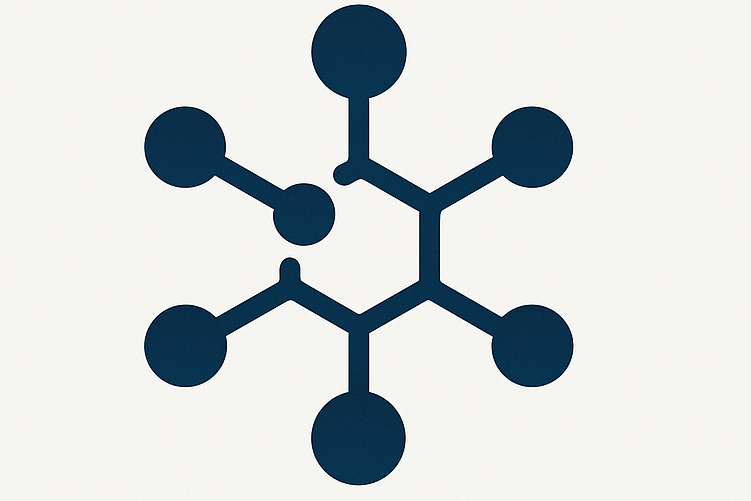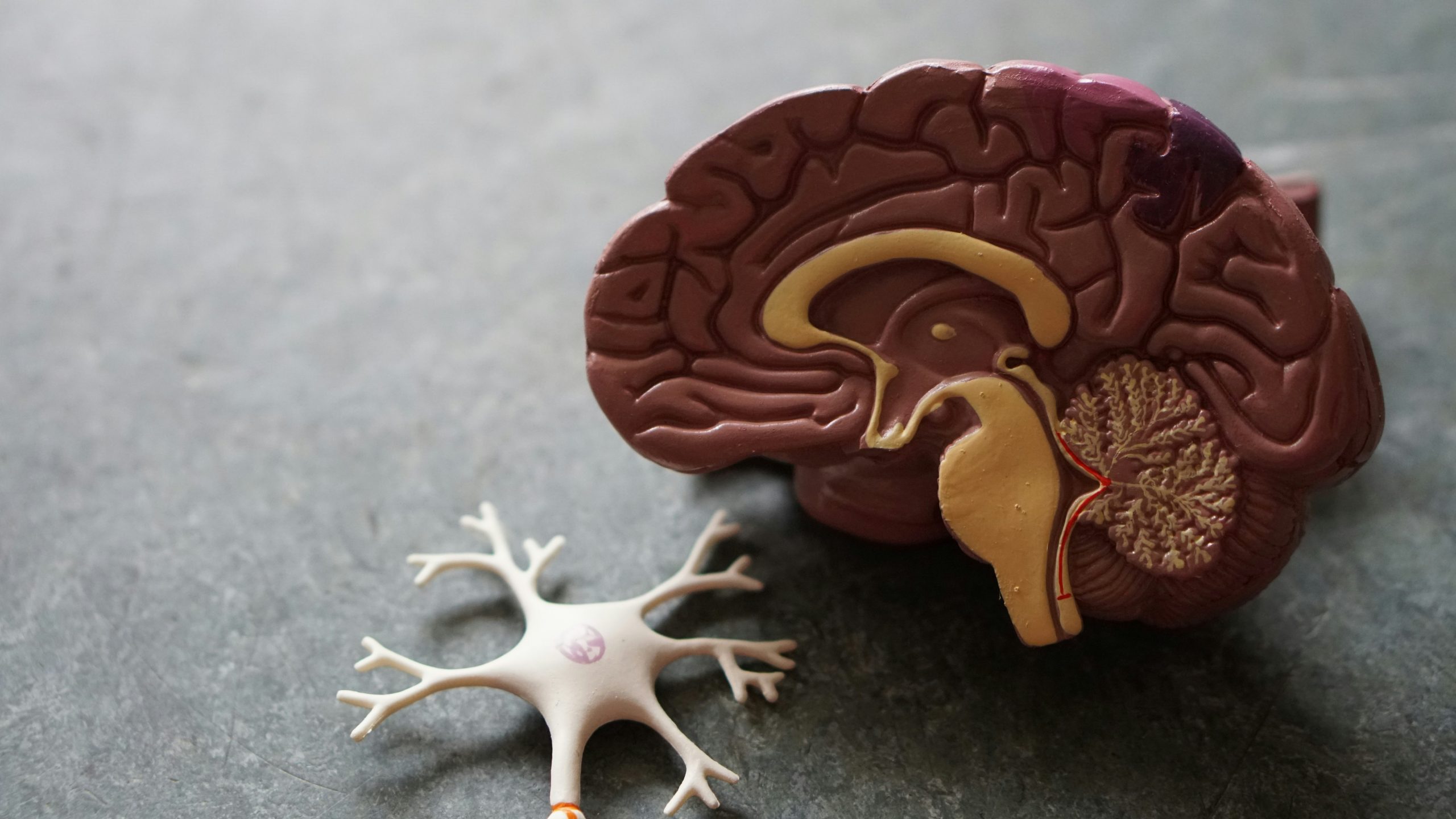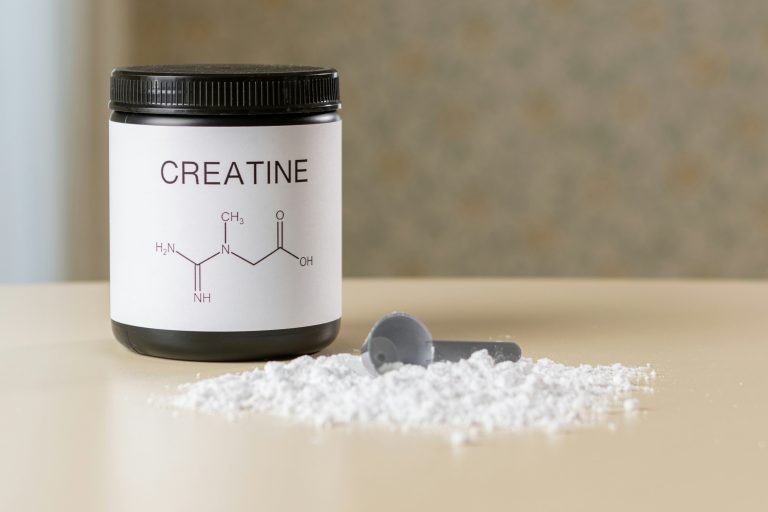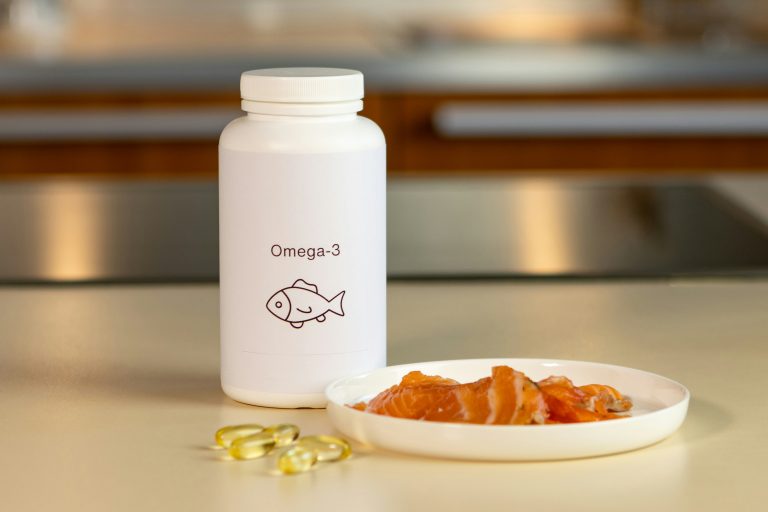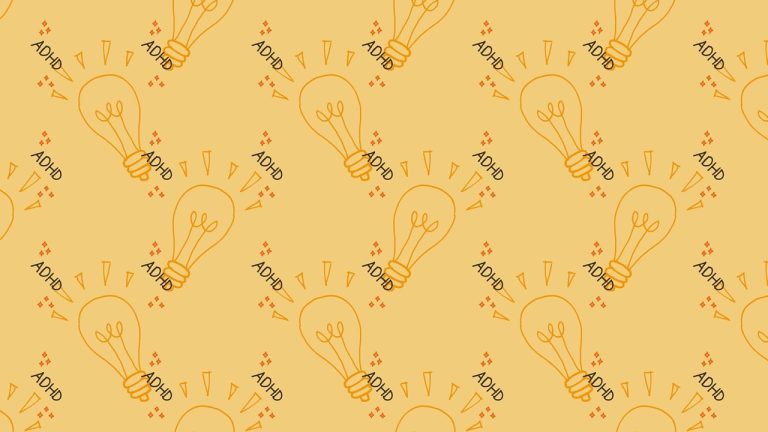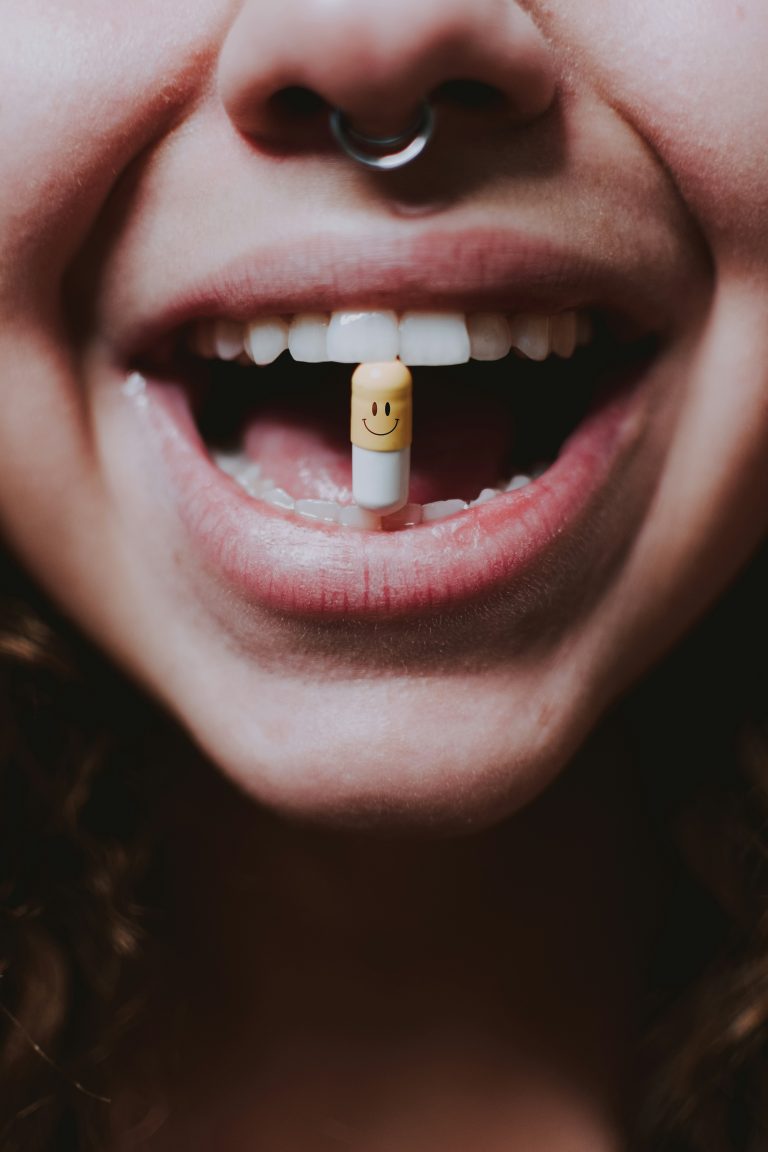Brain Supplements & Nootropics Guide (2025)
Introduction
“The brain is wider than the sky.” – Emily Dickinson
When your brain is firing on all cylinders, everything feels easier — from memory and learning to productivity and mood. But when brain fog rolls in, even basic tasks feel uphill.
Modern life pushes our minds to the edge: deadlines, distractions, stress, and poor sleep. It’s no surprise that more people than ever are turning to brain supplements, nootropics, and natural cognitive enhancers to boost mental performance and focus.
This guide unpacks the science behind the most popular nootropic supplements — including ingredients like bacopa monnieri, ginkgo biloba, omega-3 fatty acids, and others that improve cognitive function, support brain cell health, and reduce age-related decline.
If you’re looking to boost alertness, enhance memory, or simply support long-term brain health, you’re in the right place.
Quick Comparison: Types of Nootropics, Mechanisms, and Benefits
To help you get the lay of the land, the table below summarizes various nootropic substances (both natural and a few synthetic), how they work, and their potential cognitive benefits:
| Nootropic | How It Works (Mechanism) | Potential Benefits (Evidence) |
|---|---|---|
| Omega-3 Fatty Acids (EPA/DHA) | Incorporate into brain cell membranes; anti-inflammatory. Support neurotransmission and cell structure.) | Improves memory, reaction time, and thinking skills (especially in those low in omega-3). May reduce age-related cognitive decline and support mood. |
| Citicoline & Alpha-GPC (Choline sources) | Increase acetylcholine levels in the brain; support neuron membrane synthesis. Enhance brain energy metabolism. | Improve memory and attention, particularly in older adults with memory issues. Used to boost focus and mental performance; in Europe, citicoline is used to aid stroke and dementia recovery. |
| Caffeine + L-Theanine | Caffeine blocks adenosine (a neurotransmitter that causes drowsiness) and increases dopamine/norepinephrine; L-theanine (from green tea) promotes calming neurotransmitters (GABA) and alpha brain waves. Together, they balance stimulation and relaxation. | Increases alertness, energy, and focus while reducing jitters. Studies show this combo improves attention and task switching on demanding cognitive tasks. Enhances productivity and concentration, widely used for immediate focus. |
| Bacopa Monnieri | Antioxidant herb that modulates neurotransmitters (acetylcholine, serotonin) and promotes nerve cell dendrite growth . Requires weeks of consistent use to alter brain chemistry. | Improves memory and learning, both in healthy adults and those with age-related impairment. Notable enhancement in recall after ~4–6 weeks at ~300 mg daily. Also has anxiolytic (anxiety-reducing) effects for some users, though can cause mild digestive upset. |
| Ginkgo Biloba | Increases cerebral blood flow and acts as an antioxidant in the brain. May protect neurons from oxidative damage and improve signaling. | Supports short-term memory and cognitive speed, especially in older adults. Some studies show ginkgo can help reduce age-related cognitive decline and improve memory in healthy middle-aged people. (Results have been mixed, however, see –healthline.com) |
| Rhodiola Rosea (Adaptogen) | Helps balance stress hormones like cortisol; reduces mental and physical fatigue. May influence levels of dopamine and serotonin. | Enhances focus, stamina, and mood under stress. Trials have found Rhodiola can decrease fatigue and improve cognitive function in high-stress or burnout conditions. Particularly useful for combating “brain fog” and exhaustion, though more research is needed for definitive effects. |
| Lion’s Mane Mushroom | Contains compounds (hericenones, erinacines) that stimulate Nerve Growth Factor (NGF) and brain-derived neurotrophic factor, supporting neurogenesis. Anti-inflammatory and antioxidant effects in the brain. | May improve memory and cognitive function with long-term use. In a small study, older adults with mild cognitive impairment showed improved scores on cognitive tests after 4 months of Lion’s Mane supplementation. Animal research indicates potential to slow or reverse neurodegenerative changes. Also reported to help mood and nerve regeneration, but human research is still preliminary. |
| B-Vitamins (B6, B9, B12) | Co-factors in neurotransmitter synthesis (e.g., making serotonin, dopamine); help regulate homocysteine levels which at high levels can harm neurons. Support myelin formation and energy metabolism in brain cells. | Prevent deficiency-related cognitive problems (e.g., B12 or folate deficiency can cause memory issues and brain fog). In people low in B vitamins, supplementation improves cognition. High doses of B6/B9/B12 have shown mixed results in dementia prevention, but do slow brain atrophy in those with high homocysteine. Overall, essential for maintaining healthy brain function. |
| Phosphatidylserine (PS) | A phospholipid that is a major component of neuron membranes, aiding in cell signaling and protective coating of brain cells. Supports neurotransmitter receptor function and reduces cortisol. | Helps preserve and improve memory and cognitive function, especially in older adults. Doses of 100 mg PS three times daily reduced age-related cognitive decline in studies. Even in healthy young people, up to 400 mg/day improved thinking skills and memory recall. Recognized as a safe supplement for supporting overall brain health (commonly derived from soy or sunflower lecithin). |
| Creatine Monohydrate | Increases the brain’s supply of phosphocreatine, which helps regenerate ATP – the energy currency of cells. Essentially boosts cellular energy availability in neurons, especially under high demand . | Improves short-term memory and reasoning, particularly in scenarios of sleep deprivation or vegetarian diets (where creatine stores may be lower). Studies found creatine supplements enhanced memory and intelligence test performance in individuals with low dietary creatine (e.g. non-meat-eaters). Also supports quick thinking during mental fatigue. Very safe for healthy adults in moderate doses (3–5 g/day), but stay hydrated and consult a doctor if you have kidney issues. |
What Are Nootropics (Cognitive Enhancers) and Brain Boosters?
Nootropics — also called smart drugs or brain boosters — are supplements or substances that may improve cognitive function, especially executive functions like memory, focus, creativity, and motivation.
They work by:
- Enhancing blood flow to the brain
- Modulating neurotransmitters (like acetylcholine and dopamine)
- Supporting brain cell function and development
- Reducing oxidative stress and inflammation
- Protecting against cognitive decline in older adults
You’ll find both natural nootropics (like Lion’s Mane, bacopa, and Rhodiola) and synthetic options. But this guide focuses on dietary supplements and herbal nootropic brain support with proven benefits and safety profiles.
Top Brain Supplements and Nootropic Ingredients (2025)
Here’s a breakdown of the most effective, research-backed supplements that support brain function, alertness, and cognitive performance:
1. Omega-3 Fatty Acids (EPA/DHA) – The Brain Foundation
- Essential for healthy brain development and mood regulation
- DHA supports brain cell structure
- EPA linked to reduced cognitive decline and emotional balance
- Found in fish oil supplements and algae oil capsules
2. Citicoline & Alpha-GPC – Brain Chemistry Boosters
- Boost acetylcholine, critical for memory and attention
- Help improve mental performance, reaction speed, and learning
- Popular as base ingredients in advanced nootropic blends
3. Caffeine + L-Theanine – The Focus Capsule Stack
- A classic combo: caffeine for alertness, L-theanine for calm
- Increases attention and focus without overstimulation
- Supports productivity and short-term brain booster effects
4. Bacopa Monnieri – Memory & Learning Enhancer
- Ayurvedic nootropic with human studies showing improved working memory and recall
- Requires consistent use (8–12 weeks)
- Contains bacosides that support brain cell communication
5. Ginkgo Biloba – Circulation and Cognitive Function
- Supports blood flow to the brain
- May help with age-related memory loss
- Common in over-the-counter nootropic supplements
6. Rhodiola Rosea – Adaptogen for Mental Fatigue
- Balances cortisol and boosts mental focus
- Shown to improve energy and reduce burnout
- Often used as a brain supplement for stress-driven cognition dips
7. Lion’s Mane Mushroom – Long-Term Brain Support
- Stimulates nerve growth factor (NGF)
- Early studies suggest potential to improve cognitive function and memory
- Popular in mushroom brain supplements and powders
8. B-Vitamins – The Brain’s Maintenance Crew
- B6, B9 (folate), and B12 support neurotransmitter production
- Deficiencies linked to brain fog and poor cognition
- Essential for overall cognitive function and performance
Now let’s take a closer look at some of the top nootropic ingredients for brain health and performance. Below, we expand on each of these popular brain boosters, explaining why they’re noteworthy and what the science says:
1. Omega-3 Fatty Acids (EPA/DHA) – The Brain Foundation
Omega-3 fatty acids, particularly EPA and DHA, are essential fats that play foundational roles in brain health. DHA (docosahexaenoic acid) is a major structural component of brain cell membranes – about 90% of the omega-3 fats in your brain are DHA. EPA (eicosapentaenoic acid) is known for its anti-inflammatory effects, which can protect the brain against aging and damage.
You primarily get EPA/DHA from fatty fish (like salmon, sardines) or algae. Fish oil supplements are a convenient source. Research has linked omega-3 intake to improved brain health and cognition. For example, taking DHA supplements has improved thinking skills, memory, and reaction times in healthy individuals who previously had low omega-3 intake. In people with mild cognitive decline, omega-3 supplementation has shown benefits for brain function as well. EPA, on the other hand, hasn’t consistently shown direct cognitive improvements in healthy folks, but it has helped mood (particularly in people with depression). Moreover, fish oil (which contains both DHA and EPA) appears to slow the typical cognitive decline we see with aging – though evidence has been mixed, and optimal dosing is still being researched (healthline.com).
Overall, omega-3s are considered a “nootropic staple.” They support the basic structure and fluidity of brain cells and have downstream benefits for mood regulation and vascular health. Experts recommend aiming for around 1 gram per day of combined DHA/EPA from supplements if you don’t eat fatty fish regularly. This is truly a foundation for long-term brain health (and general health), so it’s a great starting point for any brain supplement regimen.
2. Citicoline & Alpha-GPC – Brain Chemistry Boosters
Citicoline (CDP-Choline) and Alpha-GPC are two of the most popular choline donors used in nootropic formulas. Choline is a vital nutrient for making acetylcholine, a neurotransmitter heavily involved in memory and learning. Citicoline and Alpha-GPC both effectively raise choline levels in the brain, but they do so in slightly different ways:
- Citicoline (brand name Cognizin in some supplements) breaks down into choline and cytidine in the body, which then crosses into the brain and helps synthesize phospholipids for cell membranes. It not only boosts acetylcholine, but also has neuroprotective properties and supports brain metabolism. In fact, citicoline is used as a prescription memory drug in parts of Europe and Japan. Studies have found it can improve memory in older adults with age-related memory impairment. A 2022 scientific review of 100+ studies concluded citicoline can improve memory and attention in healthy individuals as well. This makes it a great all-around brain performance enhancer.
- Alpha-GPC (L-Alpha glycerylphosphorylcholine) is another highly bioavailable choline source that directly increases acetylcholine in the brain. It’s actually considered a potential treatment for cognitive disorders in Europe (also available OTC as a supplement elsewhere). Some clinical trials in Alzheimer’s and dementia patients showed improved cognitive function with Alpha-GPC (pmc.ncbi.nlm.nih.gov). While its benefits for young, healthy people are less proven, it’s widely taken for supporting memory and focus. Notably, Alpha-GPC at 1200 mg/day (split into three doses) was found to modestly improve memory in Alzheimer’s patients. It’s well-tolerated for up to 6 months of use.
In practical terms, both citicoline and Alpha-GPC give your brain more choline to work with, thereby “fueling” the production of acetylcholine – the neurotransmitter often dubbed the “memory molecule.” Many advanced nootropic stacks include one of these as a base ingredient for supporting overall cognitive function. Typical supplemental doses are 250–500 mg of citicoline or 300–600 mg of Alpha-GPC per day, but products vary. These supplements can be especially useful if you’re looking to intensify your focus or if your diet is low in choline (egg yolks and organ meats are top choline foods that many people don’t consume enough of).
3. Caffeine + L-Theanine – The Focus Power Combo
Caffeine is perhaps the most widely used nootropic in the world – millions rely on their coffee or tea for a mental boost daily. Caffeine on its own is a stimulant that blocks adenosine receptors in the brain, making you feel less tired, and increases release of other neurotransmitters that make you feel alert and energized. It reliably improves reaction time, vigilance, and even memory in the short term. However, high doses of caffeine can cause jitteriness, anxiety, and crash-like fatigue when it wears off.
Enter L-Theanine: an amino acid found naturally in green tea. L-theanine promotes relaxation and calm without sedation by increasing alpha brain waves and influencing GABA and glutamate receptors. The magic happens when you combine caffeine with L-theanine – you get the best of both: clear focus and alertness plus a smooth, calm feeling. This combination has been studied, and research shows that about 40 mg of caffeine paired with ~100 mg of L-theanine can help people focus better during demanding tasks. In young adults, this combo improved accuracy on task-switching tests and self-reported alertness without the usual caffeine anxiety(pubmed.ncbi.nlm.nih.gov).
Many people achieve this mix simply by drinking high-quality green tea (which naturally contains both compounds) or by taking a caffeine pill alongside an L-theanine supplement. It’s considered so effective that it’s often called the “student’s stack” for studying, or the go-to for office workers seeking productivity. A typical effective ratio is 1:2 (caffeine:Theanine) – for example, 100 mg caffeine with 200 mg L-theanine. This stack is a safe, starter nootropic for most, but remember not to overdo the caffeine. Staying under about 400 mg of caffeine per day is generally considered safe for most adults (healthline.com). Also, avoid taking caffeine late in the day to protect your sleep.
4. Bacopa Monnieri – Memory & Learning Enhancer
Bacopa monnieri (also known as Brahmi) is an ancient Ayurvedic herb famed for its memory-enhancing properties. Modern research backs up its traditional use: bacopa has neuroprotective antioxidants and seems to boost communication between neurons. Animal studies and cell studies show it promotes the growth of nerve endings called dendrites, which could enhance neural connectivity. But what about humans?
Multiple randomized controlled trials have found that bacopa supplements (typically 300 mg per day of an extract standardized for bacosides) improve memory recall and learning in healthy adults. Notably, unlike stimulants, bacopa isn’t an acute performance booster – you must take it consistently for several weeks to see results. Studies have shown benefits usually after 4 to 12 weeks of daily use. For instance, one study cited in a review showed improvements in memory in volunteers after 12 weeks on bacopa compared to placebo. Similarly, older adults with mild cognitive issues have seen memory improvements from bacopa.
In addition to memory, bacopa may reduce anxiety and help with attention to some degree (likely due to modulation of serotonin and dopamine). But some people primarily take it as a “study herb” for better retention of new information. One key tip: bacopa can cause gastrointestinal side effects in some individuals (like nausea or diarrhea), especially on an empty stomach. Taking it with food mitigates this.
Bottom line: Bacopa is one of the most evidence-backed natural nootropics for enhancing memory and learning capacity. If you’re okay with a bit of patience (waiting several weeks), it can be a powerful herb to add to your brain health stack – particularly useful for students or anyone engaged in lifelong learning.
5. Ginkgo Biloba – Circulation and Cognitive Function
Ginkgo biloba is another herbal supplement with a long history (used in Traditional Chinese Medicine) and modern popularity as a “memory pill.” It’s derived from the leaves of the Ginkgo tree. Ginkgo’s main nootropic claim to fame is improving blood flow in the brain. It dilates blood vessels and makes blood less sticky, which can enhance circulation. Better blood flow means more oxygen and nutrients can reach brain cells, theoretically boosting their function. Ginkgo is also an antioxidant and may protect neurons from oxidative stress.
Research on ginkgo’s effects have been mixed – some studies show clear benefits, others show minimal changes. On the positive side, several studies have found that ginkgo can protect against age-related cognitive decline, especially in older adults complaining of memory issues. It has been used in the context of early-stage dementia with some success in slowing symptoms. Moreover, a study on healthy middle-aged adults found improved memory and cognitive speed with ginkgo supplementation. These results suggest ginkgo might also provide a nice cognitive “sharpness” in everyday life. However, not all trials find an effect in healthy individuals; some large studies in seniors with age-related memory complaints showed no significant prevention of decline versus placebo.
Despite the variability, ginkgo remains incredibly popular worldwide. Typical doses are 120–240 mg of a standardized extract daily, often split into two doses. It may take a few weeks of use to notice effects. Importantly, because ginkgo affects blood flow, it can increase bleeding risk – so it’s not recommended to combine with blood thinner medications, and you’d generally stop it before any surgery. Always consult a doctor if you’re on medication. For most people, ginkgo is well-tolerated and serves as a gentle daily memory and mental clarity supporter. Think of it as fertilizer for your brain’s blood vessels – potentially helping nurture your neurons over time.
6. Rhodiola Rosea – Adaptogen for Mental Fatigue
Rhodiola rosea is a fragrant adaptogenic root used traditionally in cold regions like Siberia and Scandinavia to combat fatigue and boost endurance. As an adaptogen, it helps the body adapt to stress. Rhodiola’s nootropic benefits center on reducing mental fatigue and burnout, thereby indirectly improving cognitive function under stress. If you often feel drained or mentally wiped out, rhodiola might be worth a look.
How it works: Rhodiola influences levels of stress hormones (like cortisol) and brain chemicals associated with fatigue. By modulating the stress response, it can prevent the sharp decline in work capacity that comes from prolonged stress. Clinical studies have demonstrated that taking rhodiola extract can increase energy, focus, and mood in people facing stressful, tiring situations. For example, in trials with physicians on night shifts and students during exam periods, those taking rhodiola reported less fatigue and better task performance compared to placebo. A review of multiple studies concluded rhodiola has beneficial effects on physical and mental performance under strain.
However, as with many herbal supplements, not all findings are consistent. Some research didn’t show a significant benefit, and in 2012 the European Food Safety Authority commented that more evidence is needed to confirm rhodiola’s cognitive claims. Even so, it’s considered quite safe and is non-sedating (in fact many feel it’s mildly energizing without being a stimulant). It might also help with mild anxiety and mood by its influence on serotonin and dopamine.
Rhodiola is often taken in the morning or early afternoon. Doses around 300–500 mg of Rhodiola rosea extract (standardized to ~3% rosavins and 1% salidroside) are common. Cycling usage (e.g., 5 days on, 2 days off) is sometimes recommended anecdotally to prevent tolerance, although clear evidence on tolerance is lacking. If your main issue is brain fatigue – difficulty concentrating when you’re stressed or tired – this adaptogen could be a game-changer in your nootropic stack.
7. Lion’s Mane Mushroom – Long-Term Brain Support
Lion’s Mane (Hericium erinaceus) is a medicinal mushroom getting a lot of buzz for its neuroprotective and nootropic potential. Unlike quick stimulants, Lion’s Mane is about nourishing the brain. It has two unique compounds, hericenones and erinacines, that can stimulate the production of Nerve Growth Factor (NGF) in the brain. NGF is like Miracle-Gro for your neurons – it helps new neurons grow and existing ones survive. This suggests Lion’s Mane could support neurogenesis and synaptic plasticity (the brain’s ability to form new connections), which is key for learning and memory.
What does the research say? While we need more large human studies, early results are promising. A small double-blind trial in Japan found that older adults with mild cognitive impairment improved their cognitive test scores after 16 weeks of taking Lion’s Mane mushroom, compared to those on placebo. Interestingly, the benefits appeared to wear off after they stopped taking it, indicating a need for continuous use to maintain the effect. Another study in younger adults showed Lion’s Mane improved aspects of brain function like focus and mental processing speed. People also report mood and anti-anxiety benefits, which might be due to Lion’s Mane’s anti-inflammatory effects in the brain or impacts on hippocampal neurogenesis.
Lion’s Mane is also being researched for neurodegenerative diseases such as Alzheimer’s and Parkinson’s. In animal models, it has reduced amyloid plaque formation and helped regenerate nerves. These are early-stage findings, but they underline Lion’s Mane as a powerful brain longevity supplement.
For supplementation, typical doses are 500–1000 mg of Lion’s Mane extract (usually 1-3 times daily). It’s important to get a high-quality extract (look for ones that specify a high beta-glucan content and use the fruiting body of the mushroom, as that’s where many active compounds are). Because it’s food-based and not stimulating, you can take Lion’s Mane any time of day. Over months and years, it could be a fantastic natural ally in keeping your brain resilient and sharp.
8. B-Vitamins – The Brain’s Maintenance Crew
While they aren’t flashy or novel, B-vitamins (particularly B6, B9 folate, and B12) are absolutely essential to brain function. Think of them as the maintenance crew that keeps the brain’s machinery running smoothly. They help metabolize food into energy, create neurotransmitters, and support the myelin sheath that insulates nerve fibers. If you are deficient in any of these vitamins, you can experience fatigue, memory problems, and mood disturbances.
For example, a vitamin B12 deficiency can cause symptoms ranging from brain fog and poor memory all the way to serious cognitive impairment if prolonged. Likewise, inadequate folate (B9) or B6 can elevate homocysteine, an amino acid that at high levels is associated with increased risk of cognitive decline and Alzheimer’s disease. Supplementing B6, B9, B12 has been shown to reduce homocysteine significantly and, in some studies, slow brain atrophy in people with mild cognitive impairment. One notable trial found high-dose B-vitamin therapy over 2 years slowed shrinkage of the brain’s memory centers by up to 53% in adults with high homocysteine – but only if they had good omega-3 levels too, highlighting that nutrients often work in tandem.
For most generally healthy people, taking a B-complex or ensuring you get enough through diet (leafy greens for folate, meat/eggs or B12-fortified foods for B12, various foods for B6) will ensure you’re not running at a deficit. There’s evidence that unless you are low in B vitamins, extra supplementation might not further boost cognition. In other words, B-vitamins won’t turn you into a genius overnight, but they will take the brakes off a brain that’s sluggish due to suboptimal nutrition. Vegans and older adults often need B12 supplementation, since B12 is found mostly in animal-derived foods and its absorption declines with age.
In summary, treat B-vitamins as foundational brain nutrients. They’re safe (just don’t go crazy with megadoses beyond recommended levels) and beneficial for overall energy and mental clarity. A daily multivitamin or B-complex can act as nutritional insurance for your brain’s basic needs.
(The “Top 8” list above focused on many natural nootropic ingredients. Other honorable mentions include Phosphatidylserine – a great memory-supportive nutrient we noted – and L-Tyrosine, an amino acid which can sharpen focus in high-stress or sleep-deprived situations by replenishing dopamine; studies show tyrosine can prevent cognitive decline during acute stress. Also, Resveratrol (an antioxidant from red grapes) has shown potential in animal studies for protecting memory, though human evidence is still preliminary. And as we discussed, Creatine isn’t just for muscles – it’s gaining respect as a brain booster too.)
Choosing the Right Nootropic Supplement for Your Goals
With so many options on the table, how do you decide which nootropics fit your needs? The best cognitive enhancer for one person might differ for another, depending on the goal. It helps to tailor your “stack” (the combination of supplements you use) based on what aspect of mental performance you want to improve. Here are a few common goals and the types of nootropics that align with each:
- If you want to boost Focus & Alertness: Consider fast-acting supplements that increase wakefulness or attention. A classic choice is the Caffeine + L-Theanine combo (for immediate alert focus). If you prefer stimulant-free, Rhodiola Rosea is great for fighting fatigue-related fog. L-Tyrosine is another useful add-on for acute focus needs – research shows tyrosine effectively enhances cognitive performance in short-term stressful or cognitively demanding situations. Also, Alpha-GPC or Citicoline can be included to ensure your brain’s acetylcholine levels (critical for concentration) are topped up.
- If you want to improve Memory & Learning: Opt for neuroprotective, memory-specific nootropics. Bacopa Monnieri has the strongest track record for enhancing memory formation – perfect if you are studying or want to remember details better. Lion’s Mane mushroom is a valuable addition for long-term memory support and neuroplasticity. A choline source like Citicoline can aid memory encoding by supporting acetylcholine. And don’t forget Ginkgo Biloba – it might help with recall and mental processing, especially if you’re middle-aged or older. These tend to be slower burners (they work over weeks/months), but they directly nurture the memory machinery of your brain.
- If your goal is Long-Term Brain Health & Prevention: Think foundational and protective. Omega-3 fatty acids (fish oil) are top of the list for general brain health maintenance and possibly warding off cognitive decline. Phosphatidylserine is another excellent daily supplement to preserve cognitive function as you age. Adding Lion’s Mane here makes sense too, for its neurotrophic benefits. A good B-Complex vitamin or specific B12/folate as needed will ensure no nutritional gaps that could hurt your brain over time. These create a strong nutritional baseline for your brain’s structure and function. You can then layer on something like curcumin (from turmeric, a potent antioxidant and anti-inflammatory for the brain) or Vitamin D (important for mood and brain function) as extra insurance if needed.
Of course, you can mix and match to cover multiple goals. Many people have a core stack they take daily for overall support (like fish oil, a multivitamin, maybe Lion’s Mane) and then add specific nootropics on occasions when they need extra focus or memory (like taking caffeine+theanine before a big meeting, or bacopa during a semester at school).
Tips for Choosing Quality: Whichever supplement you choose, opt for products from reputable brands that use third-party testing. Look for ones that clearly label ingredient forms and dosages – transparency is key. Avoid proprietary blends that don’t disclose how much of each ingredient you’re getting. If possible, start with single-ingredient supplements first to see how they affect you, before combining many things, so you can tell what’s working.
And importantly, introduce one new supplement at a time and monitor how you feel. Your brain is unique, so finding the right nootropic strategy can take a bit of personal experimentation.
Are Brain Supplements and Nootropics Safe?
Safety is a common concern, and rightly so – you’re dealing with your brain, after all. The good news is that most dietary nootropic supplements are considered safe when used responsibly. Here are some general safety guidelines and caveats:
Generally Safe Practices:
- Stick to recommended dosages. More is not always better. For instance, caffeine in moderate amounts is fine, but in excess it can cause anxiety or even heart issues. Follow label instructions or dosages used in studies.
- Reputable brands only: As mentioned, quality matters. Trusted supplement companies will ensure their products are free of contaminants and accurately labeled.
- Introduce one thing at a time, and at the low end of the dose range, especially if you’re new to supplements. This helps you gauge tolerance.
- Cycling some nootropics can be wise. For example, people often cycle stimulants like caffeine (taking breaks on weekends or every few weeks) to avoid building tolerance. Adaptogens like Rhodiola might also be cycled. Cycling isn’t required for all, but it can maintain effectiveness.
Use Caution With:
- High-powered stimulants. Prescription stimulants (Adderall, etc.) should never be taken without a prescription. Even high-dose caffeine supplements or pills can be risky – pure caffeine powder is particularly dangerous and has led to overdoses. If you need an alertness boost, a cup of coffee or tea, or a moderate caffeine pill (100–200 mg) is plenty.
- Unregulated “nootropic blends” from sketchy sources. The nootropics market has some fringe products that mix many experimental compounds. Some of these blends don’t disclose everything or include substances not well studied in humans. It’s best to avoid those “kitchen sink” powders, especially any claiming to be a quick fix “limitless pill.”
- Combining too many substances at once. Interactions are possible. For instance, taking multiple supplements that thin the blood (ginkgo, fish oil, high-dose vitamin E, etc.) together could increase bleeding risk. Or combining several stimulants can overstress your system. Start simple.
Medication interactions: If you’re on any medication or have underlying health conditions, absolutely check with your healthcare provider before starting a nootropic supplement. For example, ginkgo biloba could interfere with blood thinners; St. John’s Wort (often used for mood, also sometimes considered nootropic) can affect metabolism of various drugs. Even something like L-tyrosine might raise blood pressure in those on hypertension meds or interact with thyroid medication. Play it safe and get professional medical advice for your specific situation.
In summary, the natural nootropics we’ve discussed have good safety records in research: serious side effects are rare. Most side effects, if any, are mild and dose-dependent (like stomach upset from bacopa, or a headache if you take too much choline). Use common sense: treat supplements with the same respect as medications, keep your doctor in the loop, and listen to your body. If something doesn’t feel right, stop using it. When in doubt, less is more. It’s about finding the minimum effective dose and combination for you.
Natural Brain Health Habits to Amplify Your Nootropics
One cannot live on pills and powders alone! Think of nootropic supplements as the “performance layer” for your brain – but they work best on top of a solid foundation of healthy lifestyle habits. To truly get the most cognitive benefit, make sure you support your brain daily through these natural means:
- Quality Sleep: No substitute here – sleep is when your brain consolidates memories and clears out waste. Even the strongest nootropic can’t fully overcome the cognitive dulling of poor sleep. Aim for 7–9 hours of quality sleep. If you’re well-rested, supplements like caffeine or memory enhancers will have a much stronger effect because they’re working with a primed brain, not a sleep-deprived one. Prioritize sleep hygiene (consistent schedule, dark cool room, etc.).
- Nutritious Diet: Food is the original nootropic. A balanced diet with plenty of whole foods provides vitamins, minerals, antioxidants, and steady energy to your brain. Include healthy fats (nuts, seeds, fish) for neuron membranes, protein for neurotransmitters, and lots of colorful fruits/veggies for antioxidants. Diets like the Mediterranean diet or MIND diet (which is designed for brain health) have been linked to better cognitive function in old age. Remember, supplements are meant to supplement a good diet, not replace it.
- Regular Exercise: Physical exercise boosts brain health profoundly. It increases blood flow, triggers the release of BDNF (brain-derived neurotrophic factor) which helps neurons grow, and improves mood and stress resilience. Even moderate activity like brisk walking has been shown to improve memory and thinking skills over time. Combine aerobic exercise with some strength training and coordination exercises for maximum benefit. Consider exercise your daily brain tonic – it will synergize with any nootropic by providing a fertile ground for cognition.
- Mental Stimulation & Learning: Keep your brain engaged. Puzzles, reading, learning new skills, social interactions – all these stimulate neural circuits. The more you use your brain, the more receptive it can be to enhancement. Nootropics like lion’s mane or bacopa, which promote brain plasticity, will work even better if you’re challenging your brain with new information or activities (because you’ll have new connections to form). Lifelong learning is a powerful nootropic in itself.
- Stress Management (Mindfulness): Chronic stress and anxiety are enemies of memory and focus. High cortisol (stress hormone) over time can literally shrink the memory centers of the brain. Employing stress-reduction techniques – whether it’s mindfulness meditation, deep breathing, yoga, or just enjoyable hobbies – can protect your cognition. For example, meditation has been shown to increase gray matter in brain regions tied to attention and memory. By calming an overactive mind, you allow your natural focus to shine and give those focus-enhancing supplements (like L-theanine or Rhodiola) a chance to work even better.
- Hydration: Last but not least, stay hydrated. Even mild dehydration (like 1-2% loss of body water) can impair concentration and short-term memory. The brain is about 75% water, so drink up throughout the day – water, herbal teas, etc. This is especially important if you consume caffeine or are very active, as you’ll need to offset those fluids.
In essence, nootropic supplements should complement a brain-healthy lifestyle, not compensate for a poor one. If you pair, say, a good omega-3 and B-vitamin regimen with daily exercise, solid sleep, and perhaps some meditation, you’re creating an environment where your brain can truly flourish. The supplements then act as the boost on top of an already healthy brain – that’s when you’ll notice “next level” improvements.
Conclusion: Boost Your Cognitive Health with Smart Supplementation
Nootropics aren’t about becoming a genius overnight or “outsmarting” your natural brain – they’re about supporting your brain’s natural brilliance in a world that often demands more of our minds than ever before. Think of brain supplements as tools in your cognitive toolbox: when used wisely, they can help you unlock a bit more focus, clarity, memory, or mental stamina to reach your personal and professional goals.
Whether you’re aiming to improve your memory recall for exams, fight off midday brain fog at work, or maintain a sharp mind as you age, there’s likely a safe, effective brain booster that can help. From time-tested herbs like bacopa and ginkgo, to modern nutraceuticals like citicoline and Lion’s Mane, to fundamental nutrients like omega-3s – the menu of nootropics offers something for everyone. The key is to choose based on sound science and your individual needs.
Start with the core supplements that have broad benefits and solid safety (for many, this might be an omega-3 fish oil, a good multi or B-complex, and perhaps a cup of green tea for that caffeine+theanine combo). Then, build your stack gradually, adding one new element at a time, targeted to your goals – be it focus, memory, or long-term protection. Pay attention to what works for you personally, and don’t be afraid to adjust as you learn.
Finally, remember that pills and powders work best in partnership with healthy habits. The road to cognitive enhancement is paved not just with capsules, but with good sleep, exercise, nutrition, and mental balance.
Ready to unlock your brain’s full potential? Stay tuned with Molecule Made for no-fluff, science-backed advice on cognitive enhancers and brain health strategies that actually work. Together, we’ll help you support your most important organ – your brain – so you can perform at your best in the classroom, office, or just day-to-day life. Here’s to a sharper, healthier mind!
